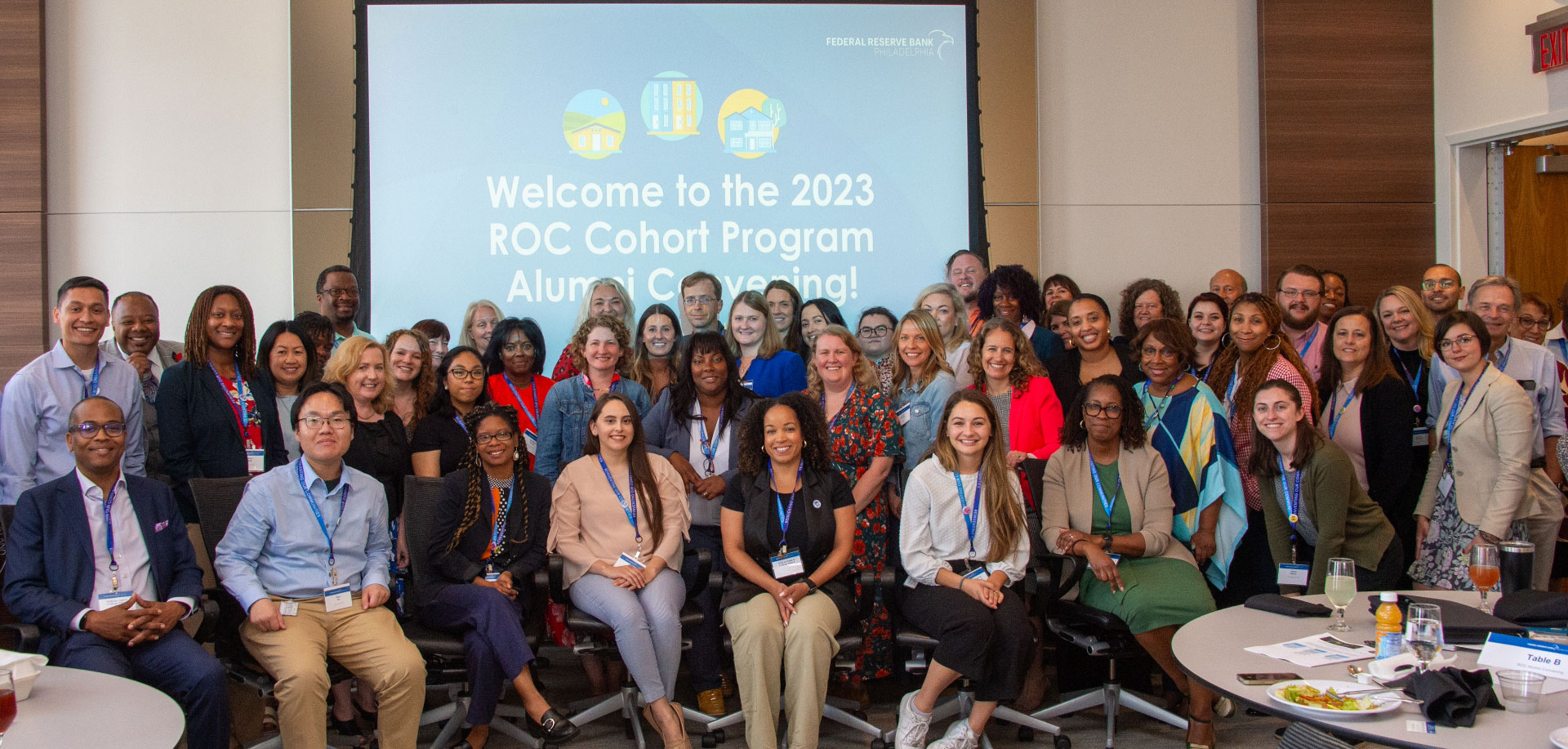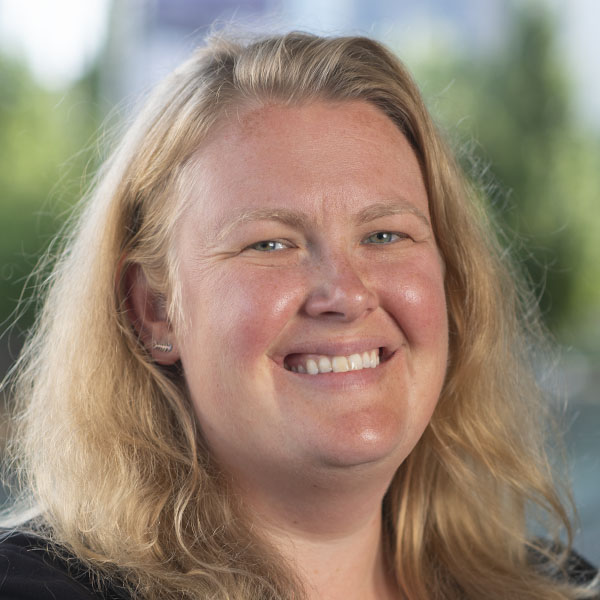What can communities learn about creating equitable workforce systems? A lot with help from the Reinventing Our Communities cohort.
On paper, Wilmington, Delaware, and Yolo County, California, may not appear that similar. But when the Philadelphia Fed’s Reinventing Our Communities (ROC) program brought leaders of both communities together in its cohort program, the two learned they faced similar workforce challenges. And they learned from each others’ experiences.
The ROC Cohort Program is a national learning community that brings together community development professionals and experts from various regions. It serves as a platform for knowledge sharing, collaborative problem-solving, and advancing equitable workforce development, small business, and housing systems nationwide. Since 2020, 28 communities across the country have completed the year-long program. The alumni convening was the first time that participants were able to share their ongoing work and learn from one another in person.
Local solutions for national trends
ROC alumni found that workforce trends vary regionally due to local histories and economic conditions. To address local challenges, local, place-based solutions are essential. At the same time, the ROC Cohort Program and alumni network gives participants the ability to learn from and utilize the knowledge and experience of others. In sharing their communities’ experiences about how to adapt national ideas to suit local needs, ROC alumni made clear a few common steps to advancing equitable workforce development.
Setting a collaborative table is crucial for community change
One example of this inclusive approach can be found in Sussex and Kent counties, Delaware. To address the disparities among Black, Hispanic, and white youth after graduation, United Way of Delaware brought together a wide range of organizations in the region.
What all of the organizations had in common is their commitment to support young people and their futures. The cohort focused on a pilot creating clear guidelines for post-graduation pathways, including apprenticeships, training programs, and workforce entry; two- and four-year college degree programs; entrepreneurship; and military service. The pathway pilot includes increased career counseling and connecting students directly to training and mentorship programs, and other community resources.
The Delaware cohort could identify and develop pathways and resources by bringing together a wide range of organizations that support young people, including schools, job agencies, and government departments. The United Way set a collaborative table of organizations who want to set up all youth for success upon high school graduation. The pathway program was piloted at Dover High School, and the cohort plans to expand it throughout Delaware with the help of its community partnerships.
Another example of collaborative partnerships is Chattanooga, Tennessee. Led by the Urban League of Chattanooga, the cohort was focused on building a common understanding of “equity” among organizations involved in workforce development initiatives across Hamilton County. The Urban League brought together the city and county governments, the local workforce board, and a local foundation.
Together, the cohort has built public and private sector understanding of equity as a lever to improve outcomes for both employers and the community as a whole. The group conducted a community needs assessment, the Community Culture Index, for the City of Chattanooga and Hamilton County. From collaborative partnerships, community needs, and shared understandings, the Chattanooga cohort has developed a toolkit that companies and workforce organizations can use to build equity into their hiring practices, delivery of trainings, and other operations.
Using data helps identify, address regional needs
When the Wilmington, Delaware cohort formed in 2020, they were hearing two common concerns:
- Employers were having trouble finding employees, and
- Residents were having trouble finding employment
The Wilmington cohort dug into data about their community and state, in the process discovering two important facts about the city. First, many employers use past convictions to screen job applicants. Second, many individuals are eligible to have their records cleared under Clean Slate laws.
To overcome these challenges, the cohort helped pass Clean Slate laws in Delaware. They obtained financial support to expedite the record-clearing process. Additionally, they formed partnerships with big companies to improve job prospects for individuals with criminal histories.
In York, Pennsylvania, a look at local data revealed the need to increase workforce participation and child care availability. Based on workforce data, along with conversations with parents and child care providers, the cohort created the “York County Child Care Plan.” The plan combines local data and national best practices to create specific recommendations to increase parental workforce participation and boost the number of child care spots in the county.

Reinventing Our Communities (ROC) Cohort members recently gathered at the Cleveland Fed in June for the ROC Alumni Convening
Centering workers’ voices ensures that programs meet community priorities
In Yolo County, California, the cohort’s original mission was to upskill farmworkers for better jobs and pay. However, through talking with farmworkers, cohort members learned of workers’ more immediate needs, both for better accessibility and for aid to secure necessities. Through community input, the Yolo County cohort created the Agricultural Worker Program to meet immediate needs while continuing to develop long-term upskilling opportunities.
In East Hartford, Connecticut, conversations with young adults and early career workers led to identifying digital access and literacy challenges. By having a collaborative table that included the local workforce board, the city’s library system, a local technology training institute and local university, and the statewide departments of labor and adult education, the East Hartford cohort ensured it had many avenues to hear from young workers.
In one instance of applying what the cohort learned from young workers themselves, a survey showed young workers and workers of color were most likely to have access to only a cell phone when applying to jobs. In response, the cohort has been working with employers to make mobile-friendly job applications and improving computer access at local job centers.
The power of community
The ROC alumni gathering has shown us the power of national communities collaborating at the local level. By bringing together regional partners, leveraging data, and centering worker voices, workforce practitioners can address unique challenges and foster equitable workforce development. The ROC Cohort Program is important for sharing knowledge and working together, improving the national workforce system to be more inclusive and successful.
Want to know more about ROC?
Learn more about the 2024 ROC program for opportunities to get involved or join us for an informational webinar on September 14.
Ready to apply? Submit an application.



